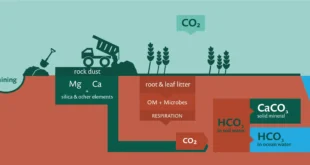- The Reserve Bank of India (RBI) has called for an additional meeting of its Monetary Policy Committee (MPC) on November 3 to discuss its response to the Centre for missing the mandated target of 2% to 6% retail inflation for three quarters in a row.
- “An additional meeting of the MPC is being scheduled on November 3,” the RBI said in a statement.
- The MPC would deliberate on the report to be sent by RBI Governor Shaktikanta Das explaining why the target was missed and what measures the RBI would take to bring inflation back within the range.
- This will be the first time such a report is prepared since the MPC framework took effect in 2016. This will also be the second time an off-schedule meeting has been called for this year. In May, the panel had met to raise rates in a bid to rein in inflation.
- With the pandemic squeezing supply chains, combined with the Russian war, inflation in India has remained above 6% for more than three quarters, making it mandatory for the RBI to explain remedial actions to the government.
Monetary dependence
- That links up to the second issue of monetary policy independence — which basically refers to the central bank being insulated from government interference or electoral pressure in setting its interest rates with a view to achieving low and stable inflation.
- The preponderant weight of food tems in the Indian consumption basket and hence its CPI — in contrast to developed countries where their shares are — makes inflation that much less amenable to control through repo interest rate or cash reserve ratio hikes.
- The RBI, then, is forced to rely more on government action to meet inflation targets. Far from acting independently — using monetary policy tools that seek to curb demand by raising borrowing costs for firms and consumers — it has to depend on “supply-side” measures by the government.
- That translates into monetary dependence, not independence.
- To get an idea of the government’s supply-side actions that have made the RBI’s job easier, consider the following:
- In the last one year, the effective import duty on crude and refined palm oil has come down from 30.25% and 41.25% to 5.5% and 13.75%, respectively. It’s been even sharper — from 30.25% to nil — for crude soyabean and sunflower oil
SOURCE: THE HINDU, THE ECONOMIC TIMES, PIB
 Chinmaya IAS Academy – Current Affairs Chinmaya IAS Academy – Current Affairs
Chinmaya IAS Academy – Current Affairs Chinmaya IAS Academy – Current Affairs



